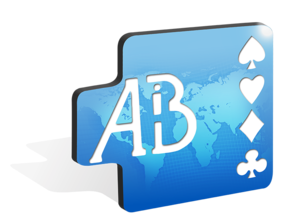This Week in Bridge
(575) Freebids by a Passed Hand
© AiB Robert S. Todd
Level: 5 of 10 robert@advinbridge.com
General
When partner makes a bid and we choose to bid a suit of our own, it is called a freebid. In most normal situations freebids show values (called positive freebids) and are often forcing 1-round. We’ve all heard the saying -- a new suit is forcing by an unpassed hand. Unfortunately, this is not always true, but it is often our agreement. Let’s look at freebids made by a passed hand and see how the fact that we have already passed changes these situations.
Positive Freebids by Level
When our partner opens the bidding, the next player makes an overcall, and then we bid a new suit, that is a freebid. Here are some examples of positive freebids:
Example 1 – 1-Level Freebid
Opener Interferer Responder Advancer
1♣ 1♦ 1♠
This 1♠ freebid shows a 4+card ♠ suit and 6+ points – it is forcing for 1-round. This would be true if we responded 1♥ as well.
Example 2 – Special 1-Level Freebid
Opener Interferer Responder Advancer
1♣ 1♥ 1♠
This 1♠ freebid shows a 5+card ♠ suit and 6+ points – it is forcing for 1-round. If we had exactly 4-card ♠, we would have made a negative double.
Example 3 – 2-Level Freebid
Opener Interferer Responder Advancer
1♦ 2♣ 2♥
This 2♥ freebid shows a 5+card ♥ suit and 10+ points – it is forcing for 1-round. Sometimes this 2-level freebid by Responder is called a “Five and Dime” – meaning a 5-card suit and 10 points. Remember, this is what we need to go to the 2-level in a new suit when partner shows opens the bidding and the opponents interfere.
Example 4 – 3-Level Freebid
Opener Interferer Responder Advancer
1♠ 3♣ 3♦
This 3♦ freebid shows a 5+card ♦ suit and a good 12+ points – it is game forcing. A freebid at the 3-level shows additional strength, not additional shape.
Positive Freebids by a Passed Hand
How do these bids change if we are a passed hand? First, we remember that a passed hand is limited in values and thus cannot make a forcing bid.
Example 5 – 1-Level Freebid
Opener Interferer Responder Advancer
P P
1♣ 1♦ 1♠
This 1♠ freebid shows a 4+card ♠ suit and 6-11 points. This bid is non-forcing.
Example 6 – Special 1-Level Freebid
Opener Interferer Responder Advancer
P P
1♣ 1♥ 1♠
This 1♠ freebid shows a 5+card ♠ suit and 6-11 points. This bid is non-forcing.
Example 7 – 2-Level Freebid
Opener Interferer Responder Advancer
P P
1♦ 2♣ 2♥
This 2♥ freebid shows a 5+card ♥ suit and about 9-11 points. This bid is non-forcing.
Example 8 – 3-Level Freebid
Opener Interferer Responder Advancer
P P
1♠ 3♣ 3♦
This 3♦ freebid shows a good 5+card ♦ suit (usually a 6-card suit) and about 9-11 points. This bid is non-forcing. We usually have a lot of distribution to make a bid like this, but we also do not have the hand that would have preempted the bidding.
Other Freebids by a Passed Hand
There are lots of auctions where we can use the fact that we are a passed hand (that our new suits are non-forcing) to allow us to compete in the auction.
Example 9
Opener Interferer Responder Advancer
P
1♦ 1♠ 2♣ 2♥
♠ Q5
♥ QT984
♦ A6
♣ 9843
With this hand we can bid 2♥, knowing that partner can either pass with some ♥ or rebid their ♠ without much ♥ support.
Conclusion
When we are a passed hand, our freebids are no longer forcing. This gives us some advantages in both constructive and competitive auctions. We can stretch to bid these new suits because they will not force the auction too high. Keep this in mind and work to use your bids to describe your hand and compete in the bidding as much as possible.

